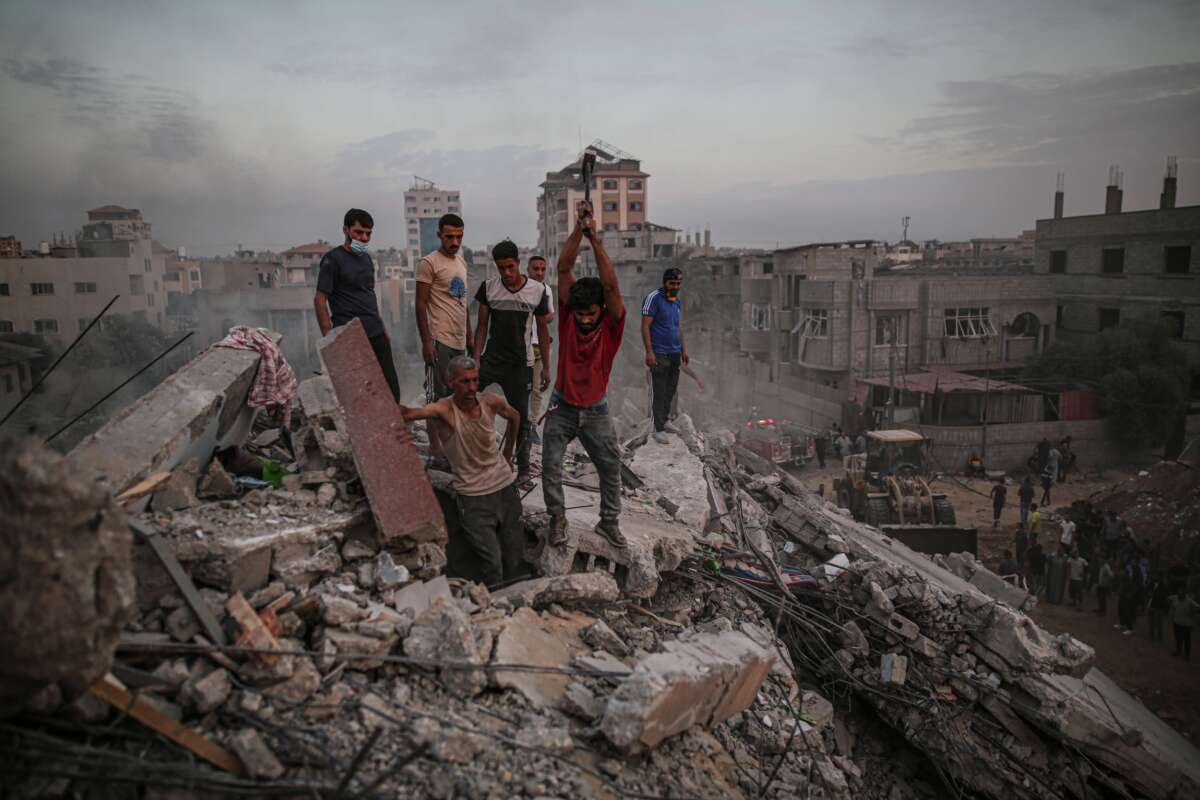Truthout is an indispensable resource for activists, movement leaders and workers everywhere. Please make this work possible with a quick donation.
The Israeli Knesset is set to consider on Wednesday whether it will bar Al Jazeera journalists from covering Israel’s war on Palestinians in a move that has been widely condemned by press freedom advocates.
Earlier this month, Israeli Minister of Communications Shlomo Karhi said that he was considering banning the network, claiming that the agency was harming national morale amid Israel’s indiscriminate military campaign against Palestinians in Gaza. Karhi accused Al Jazeera — which has provided unparalleled reporting on Israel’s siege of Gaza on the ground — of being a “propaganda mouthpiece” for Hamas after it published comments from the organization’s leaders.
“This is a station that incites, this is a station that films troops in assembly areas (outside Gaza) … that incites against the citizens of Israel,” Karhi alleged.
Days later, Netanyahu’s cabinet approved regulations that would empower the government to shutter foreign-based news agencies if it claims their reporting is damaging to Israel’s national security interests. Israel-based Haaretz reports that the full measure will be considered by the Knesset on Wednesday.
The Committee to Protect Journalists (CPJ) has condemned the proposal.
“We are deeply concerned by Israeli officials’ threats to censor media coverage of the ongoing Israel-Gaza conflict, using vague accusations of harming national morale,” the organization wrote earlier this month. “CPJ urges Israel not to ban Al-Jazeera and to allow journalists to do their jobs. A plurality of media voices is essential in order to hold power to account, especially in times of war.”
This isn’t the first time the Israeli government has cracked down on journalists covering Palestine, CPJ pointed out. In 2017, the Israeli government similarly threatened to shutter Al Jazeera, cynically accusing the network of inciting violence in its coverage of protests. In 2022, Israeli forces shot and killed Al Jazeera Arabic’s Palestinian American correspondent Shireen Abu Akleh while she was covering an Israeli army operation in the West Bank.
Jon Allsop, a freelance journalist writing for the Columbia Journalist Review, also noted that Israel’s current government has a long history of attacks on the press.
“The level of domestic anger at Netanyahu and his allies is such that they will surely not be able to avoid scrutiny. But if past is prologue, they will try,” Allsop said in an op-ed last week.
At least 31 journalists in the region have been killed since October 7, the Committee to Protect Journalists has said, including four Israeli reporters, one Lebanese reporter, and 26 Palestinian reporters, the vast majority of whom were killed by Israeli airstrikes.
Journalists in Gaza and the West Bank have said that they now face unprecedented repression — and, in some cases, what appears to be deliberate Israeli gunfire — as they attempt to document the horrors of Israel’s genocidal siege of Gaza.
“Since October 7, it’s been even more difficult for journalists to get around the occupied territories. Reporting on some developments has become very challenging as a result of police deployment and settlers riled up against the Arab press,” said Mosab Shawer, a freelance photojournalist in Hebron, West Bank, per Al Jazeera. “In all my 15 years of reporting, never did I feel this much helplessness and fear.”
Holding Trump accountable for his illegal war on Iran
The devastating American and Israeli attacks have killed hundreds of Iranians, and the death toll continues to rise.
As independent media, what we do next matters a lot. It’s up to us to report the truth, demand accountability, and reckon with the consequences of U.S. militarism at this cataclysmic historical moment.
Trump may be an authoritarian, but he is not entirely invulnerable, nor are the elected officials who have given him pass after pass. We cannot let him believe for a second longer that he can get away with something this wildly illegal or recklessly dangerous without accountability.
We ask for your support as we carry out our media resistance to unchecked militarism. Please make a tax-deductible one-time or monthly donation to Truthout.
